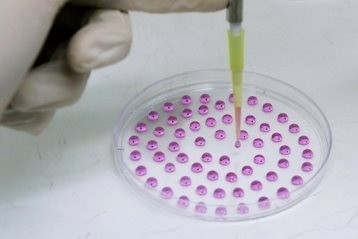A team of Chinese biologists have found a new way to reprogram and obtain induced pluripotent stem cells (iPS cells), or stem cells derived from adult cells, the Xinhua News Agency reported.
A statement released by the Chinese Academy of Sciences (CAS) said the latest research by biologist Pei Duanqing and his team dispelled the belief that autophagy plays essential role in reprogramming. Their findings revealed that it is not only unnecessary in the reprogramming process but may actually hold it back.
In biology, autophagy, or self-cannibalization, refers to a process of cells discarding or degrading cellular components under certain conditions to prevent further damage.
"Cells that did not undergo the process of autophagy had higher efficiency of reprogramming, and iPS cells generated without the autophagy also have their normal pluripotent feature," Pei was quoted as saying.
The report said that the stem cell biologists rather discovered that reprogramming is the inhibition of a substance called "mechanistic target of rapamycin complex 1 (mTORC1)."
iPS stem cells, like embryonic stem cells, can develop into any cell in the human body, the report added.
In 2012, Shinya Yamanaka, a professor at Kyoto University, won a Nobel Prize in physiology for developing an iPS cell harvesting technique that made it possible to obtain stem cells from adult tissue instead of embryos, avoiding the ethical and legal issues.
According to CAS, the Chinese scientists believe their findings can lead to the understanding on how cell reprogramming affects patients of metabolic diseases such as diabetes or cancer.
The study was published by in Nature Cell Biology on May 18, Monday.



























